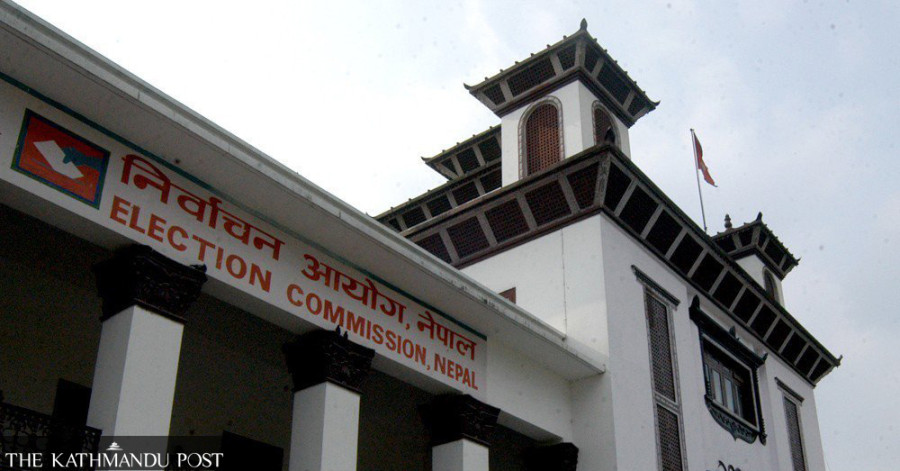National
Election Commission asks parties to register for local level elections
In 85 days from now, the elections will be held in a single phase to choose new representatives for 753 local units.
Post Report
The Election Commission has asked political parties to register for the May 13 local elections by the end of this month.
“We have asked parties to register by February 27,” said Shaligram Sharma Poudel, spokesperson for the Election Commission. “Two parties were registered today.”
According to a public notice issued by the Election Commission, parties can register themselves for the local polls by February 27 starting Thursday.
The Election Commission has asked parties to visit the commission’s office along with necessary documents including a decision of their Central Committee, party statute, regulations, election manifesto and design of the party’s election symbol and audit report, among others, for registration.
Local level elections will be held across the country in a single phase to elect new representatives (mayor, deputy mayor, rural municipality chair/vice chair, ward chair and ward member) for 753 local bodies.
According to the Election Commission records, there are as many as 103 parties registered with the commission. All parties registered with the commission are required to register separately for each election.
Though dozens of parties contested the 2017 local elections, only 15 could win at least one seat at the local level. Among them, five parties—CPN-UML, Nepali Congress, CPN (Maoist Centre), Sanghiya Samajbadi Forum Nepal and Rastriya Janata Party—won over 95 percent of the total 35,041 positions in the 753 local units.
In 2017, local elections were held in three phases—on May 14, June 18 and September 18.
Some local representatives who were elected from the second and third phases of elections, however, have questioned the government decision to hold local polls in one phase. According to them, those elected from the second and third phases would be deprived of their constitutional right to serve for the full five-year term.
Sanjeev Kumar Sah, the mayor of Bhangaha Municipality in Mahottari district, on February 8 had even approached the court with a petition demanding that the poll date decision be scrapped. Sah in his petition argued that holding elections across the country for 753 local units breaches the constitutional provisions that guarantees five years’ terms for all representatives.
The Supreme Court administration, however, refused to register his petition. Sah then challenged the rejection.
The Supreme Court on Wednesday ordered its administration to register the petition, overturning the decision to reject it.
In 2017, a total of 14,556 representatives were elected for 283 local units in the first phase. Similarly, the number of representatives elected from the second phase stood at 15,038 for 334 local bodies. In the third phase, elections were held for 136 local bodies to elect 6,627 local representatives.
Sah's petition has argued that if the elections are held on May 13, those elected last time in the third phase will have to retire four months before their five-year tenure ends. Similarly, those elected in the second phase will retire a month prior to the completion of their five years of term guaranteed by the Constitution of Nepal.
As per Article 215 (6) of the constitution, the terms of office of the chairperson, vice-chairperson, ward chairperson and members shall be five years from the date of their election.




 13.12°C Kathmandu
13.12°C Kathmandu













